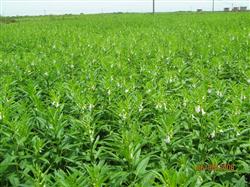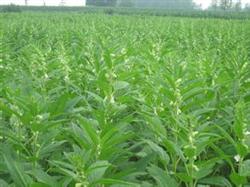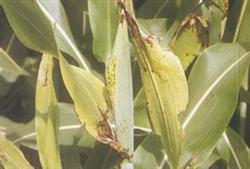Sesame should not be planted continuously.

Sesame is a good oil crop. Sesame oil is rich in nutrition and has a certain function of medical and health care. Therefore, in recent years, the demand for sesame has increased, and the area of planting sesame has been expanded. There is a problem that must be paid special attention to in planting sesame seeds, that is, one cannot continue to stubble. In other words, a crop of sesame seeds was planted last year and cannot be planted the next year. Otherwise, high output and high benefit will not be achieved. Why can't sesame seeds be planted continuously? There are two main reasons: one of the reasons is that continuous cropping of sesame will aggravate the disease. In the process of sesame production, many pathogenic bacteria, such as stem wilt, bacterial wilt, blight and so on, remain in the soil after sesame harvest. If sesame seeds are planted in the second year, these pathogens will become the source of infection of sesame seeds. The longer the continuous cropping, the more pathogens in the soil, and the disease of sesame will become more and more serious. Infected by the disease, sesame plants will appear stunted, single plant dwarf, falling flowers and few capsules and other symptoms, and even a large area of wilting and death will occur. The second reason is that sesame is a crop that needs more fertilizer, and continuous cropping will lead to nutrient imbalance. According to the experiment, for every 50 kg of sesame produced, it is necessary to absorb nitrogen 4.50 kg from the soil, 1.25 kg of phosphorus pentoxide, 5.50 kg of potassium oxide, and the ratio of the three elements is about 4.40. Thus it can be seen that sesame needs more nitrogen and potassium and less phosphorus. If continuous cropping, it will break the balance of soil fertility, resulting in the lack of nitrogen and potassium, and it is difficult to increase the yield of sesame. Therefore, continuous cropping of sesame seeds is unscientific and should be avoided.
- Prev

High yield fertilizer application of sesame
⑴ sesame seed preparation has small seeds, weak root system and slow seedling growth. Fine soil preparation is one of the important measures to sow whole and strong seedlings. Sesame is afraid of waterlogging, so in low-lying and rainy areas, on the basis of ploughing and land preparation, ditches should be made to do a good job of drainage and waterlogging prevention. Tianjin urban area has less rain and snow in spring, sowing sesame seeds in spring, raking and raking in winter.
- Next

Sorghum leaf spot disease
The symptoms are also known as spot disease. The disease can occur in all parts of the plant, mainly harmful leaves. The plaque is irregular in shape, long to fusiform or semicircular in size, up to more than 1cm, yellowish brown to grayish brown, with reddish purple edges. The disease spot often begins at the edge or end of the leaf, and some occur on the leaf surface or the upper part of the ear.
Related
- The first cup of black tea in spring, the flavor and history of tea gardens in Kenya, Africa
- The computer can not only choose potatoes, but also grow tea rice. AI will grow winter oolong tea champion.
- It is not only the inflated tea bitten by insects, but also engraved with the four seasons tea in Beipu.
- The Oriental Beauty Tea Festival in Zhuxian County takes the stage at the weekend to experience the plus-size feast of oil tea.
- & quot; Oriental Beauty Tea & Exploration of Emei in Hsinchu, the hometown of quot;
- The new variety of strawberry "Tainong 1" dessert is the first choice with mellow aroma. Crimson gorgeous
- History of Tea in Taiwan: from Wild Inner Mountain to Export Tea Garden
- Two types of Taiwan Oriental Beauty Black Tea won the British three-Star Award for Childhood Tea Xiang Zhang Jiaqi changed from pilot to champion tea maker.
- Banana species and varieties: the planting history of Taiwan Xianren banana and dwarf banana is long, is banana disease resistant?
- Coffee planting Technology: Qianjie Coffee from Seedling to harvesting

